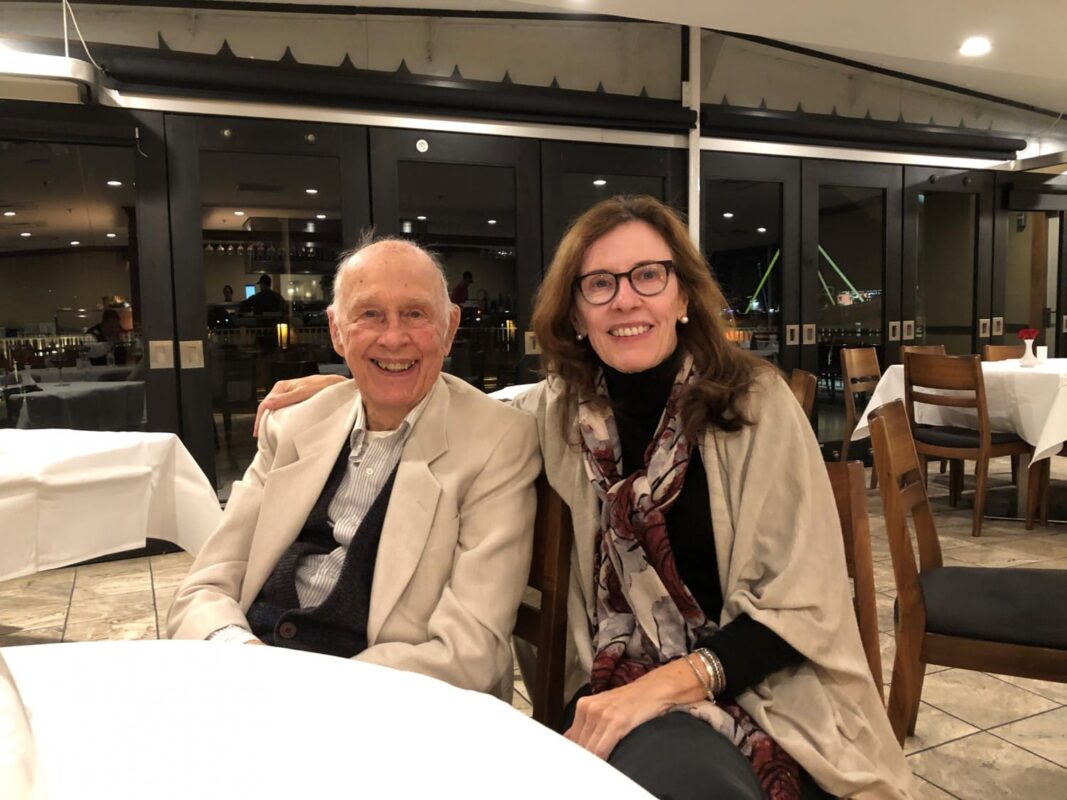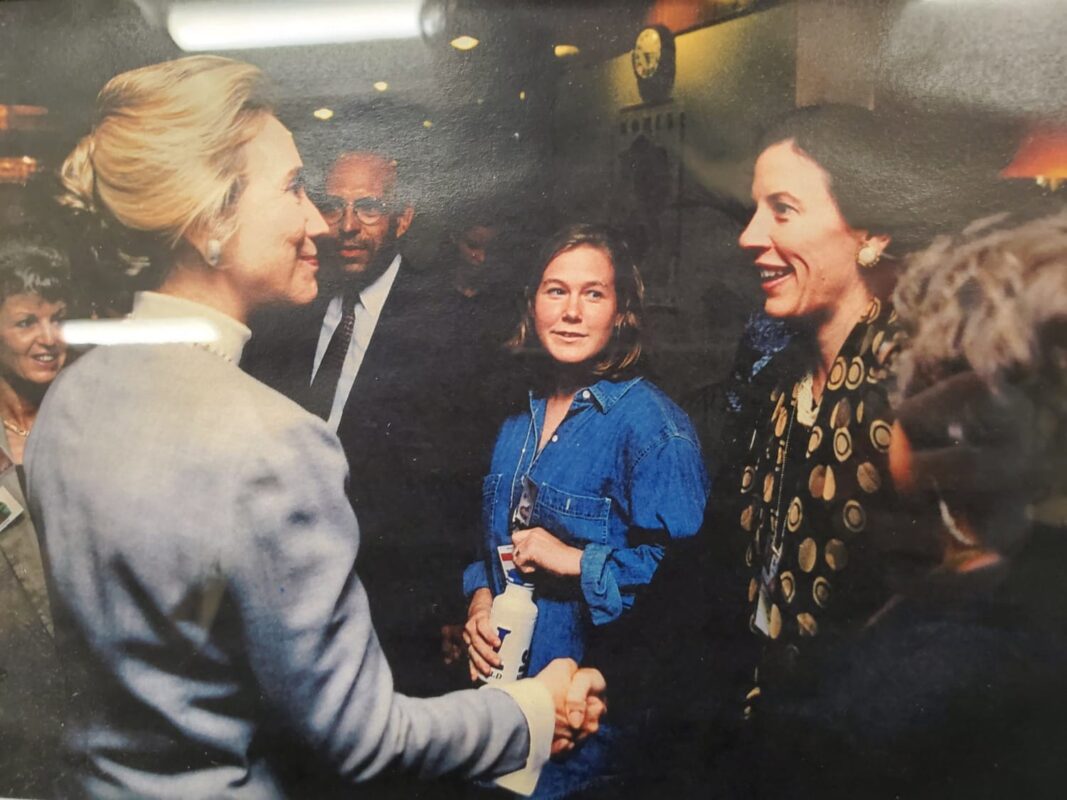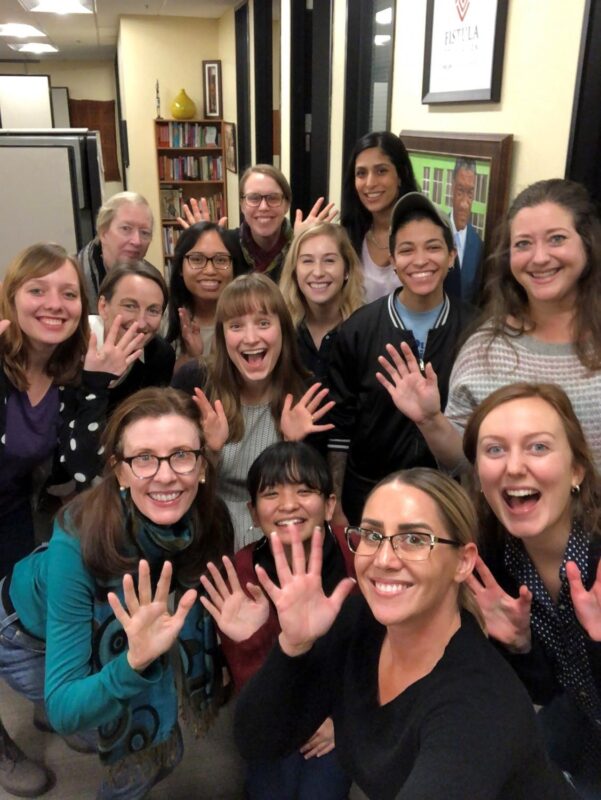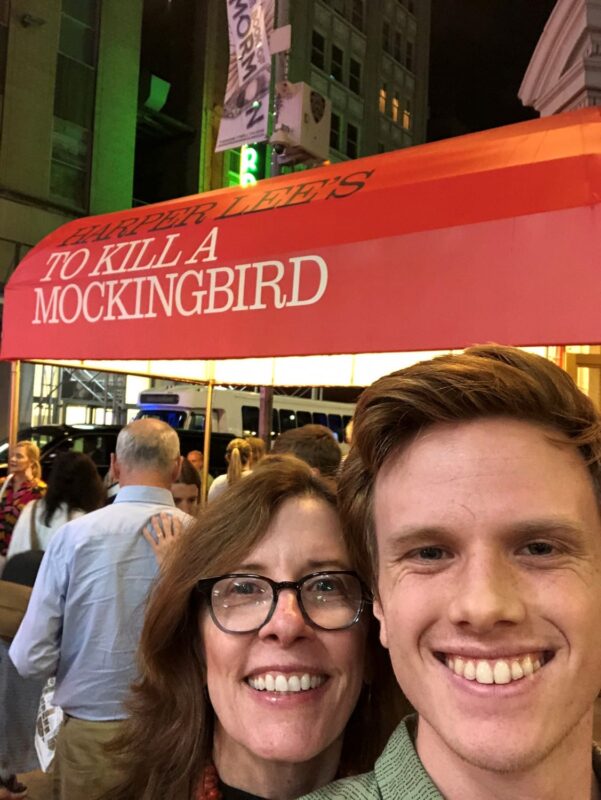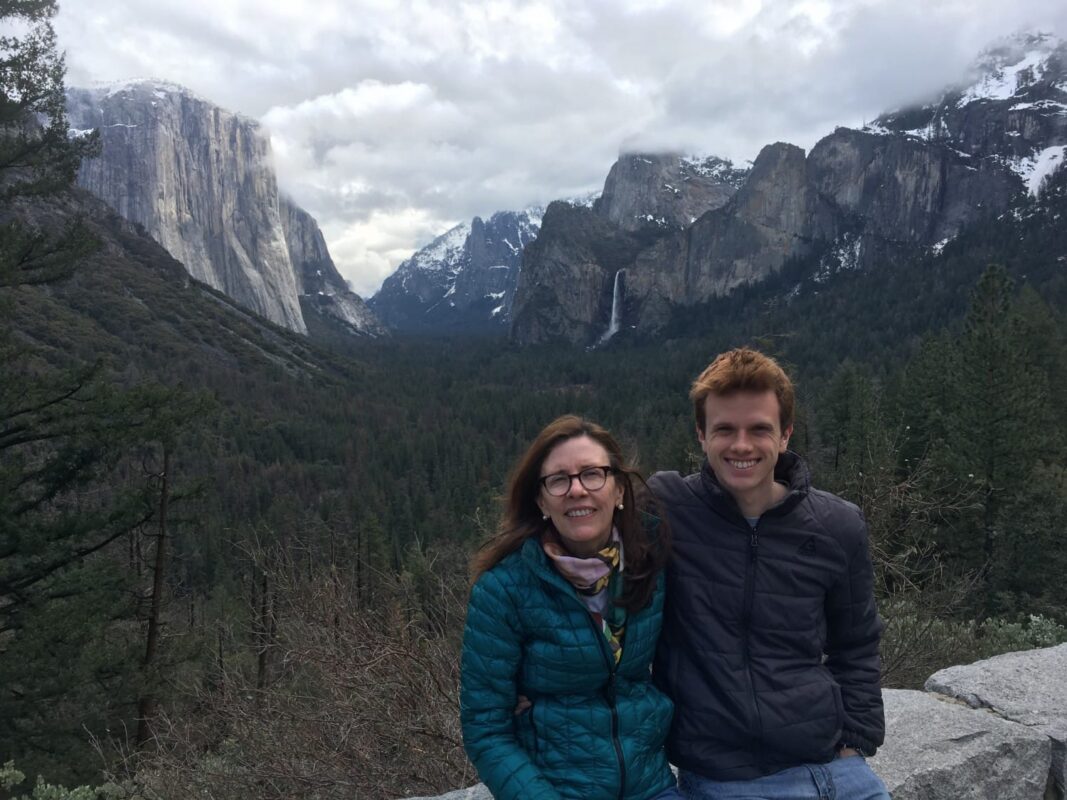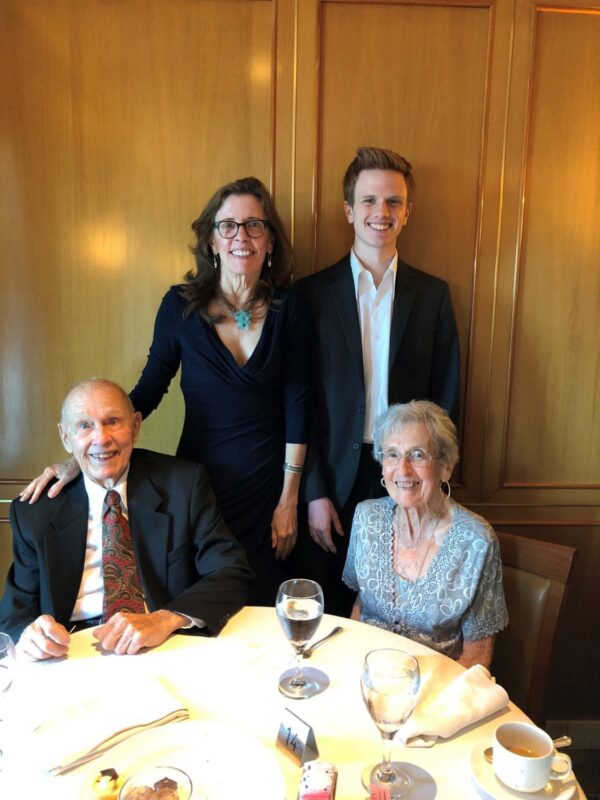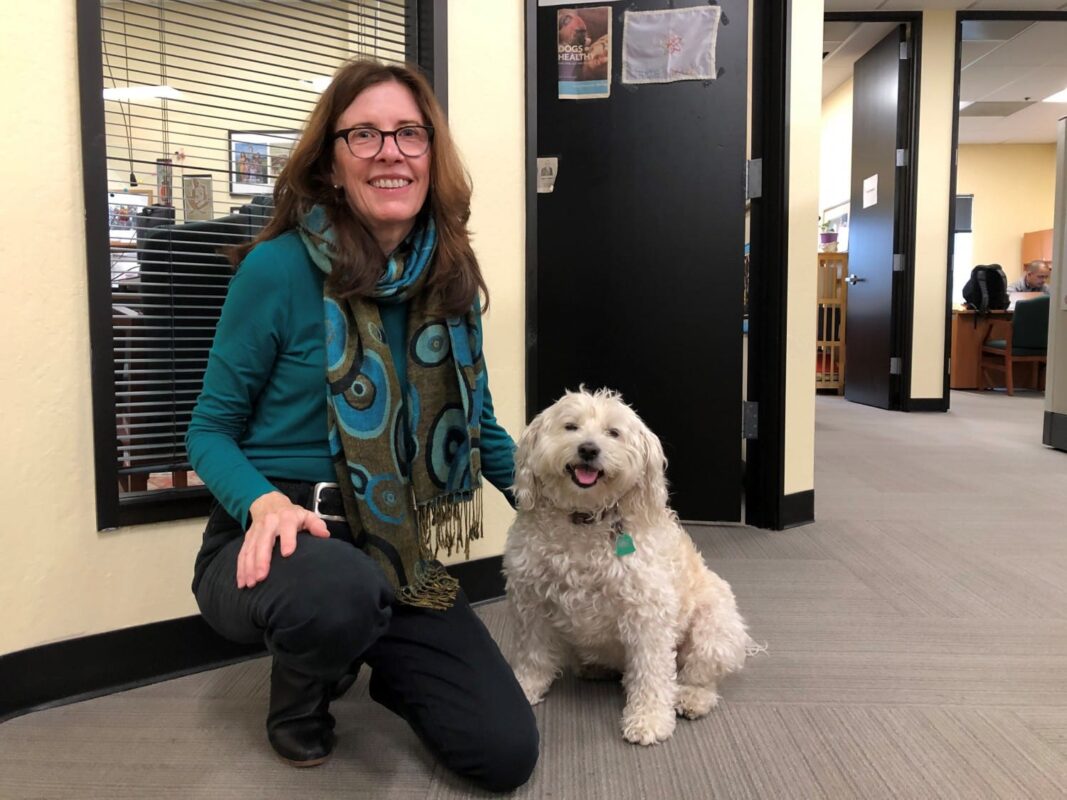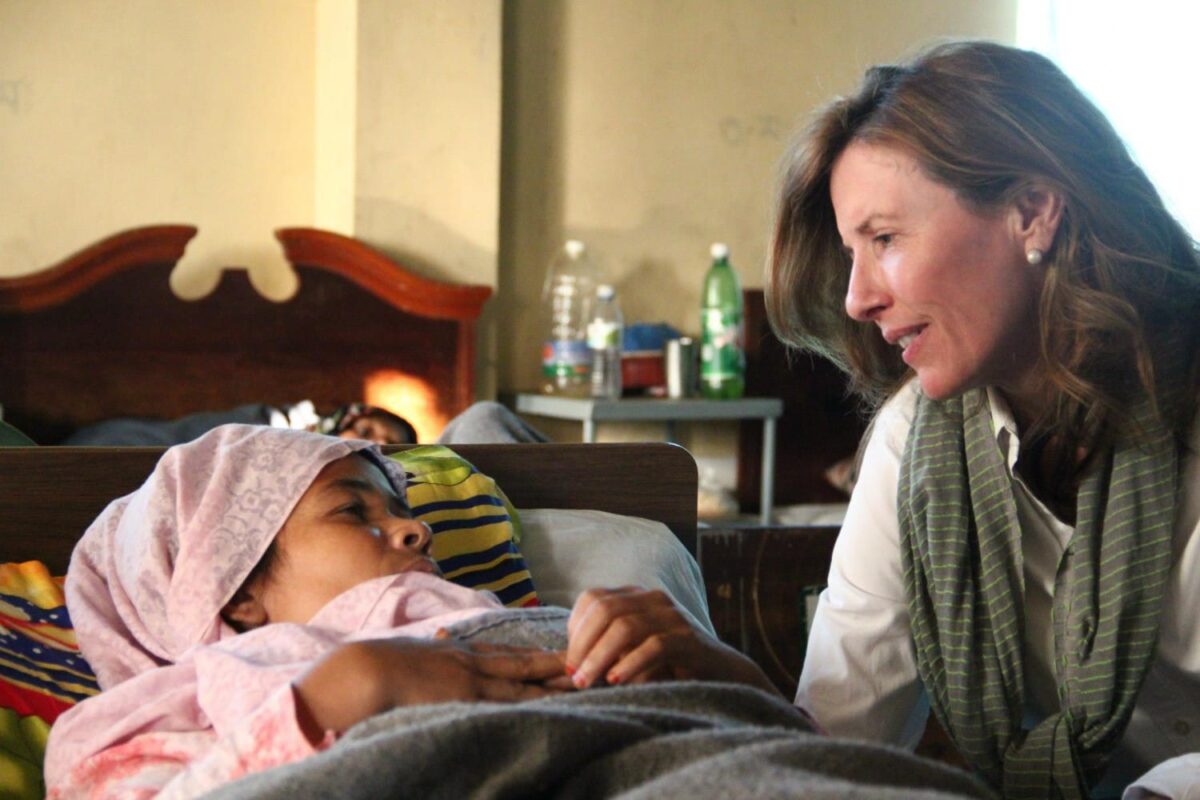Meet Kate Grant, a social leader, CEO of Fistula Foundation, a NGO focus on funding fistula treatment. Under her leadership, the foundation has more than quintupled its revenue, enabling the Foundation to support more than 15 times the number of fistula treatment surgeries. She was named “Nonprofit Marketer of the Year” by the American Marketing Association and American Marketing Association Foundation.
Who is Kate Grant? Please define yourself:
- Advocate for women around the world
- Innovator
- Mother, daughter, and friend
How were you as a kid?
I grew up in the San Francisco Bay Area as the oldest of four children, and was always told that I was “bossy.” I was an over-achiever as a kid, eventually becoming my high school class president both my junior and senior year. Yet, I can’t recall a single time when an adult asked me: “What do you want to be when you grow up?” As a female, I suspect that my potential wasn’t being measured by my merit—but rather, what kind of wife I would make. Thankfully, I see that things are changing for girls today, although we still have a long way to go.
"One of the biggest discrepancies between rich and poor nations is maternal mortality—and I believe that is because of our global struggle with gender inequality"
You graduated with honors from the Haas School of Business at the University of California-Berkeley. You completed the Harvard Business School Executive Education Program in Nonprofit Management and you have a Master of Public Administration with a focus on International Development from Princeton University’s Woodrow Wilson School, why did you chose those courses of study?
I chose my undergraduate degree in large part as a way to compromise with my father. I wanted to go to UC Berkeley, which seemed radical to him. He wanted me to prepare for a practical career that would give me a comfortable future. At Berkeley, that meant one of two options: either business or engineering—so I went with business. After college, I went into advertising.
My graduate degree, however, was much more personal. After a life-changing trip around the world in my late twenties, spending a majority of the time in developing countries, I decided to dedicate my career to helping alleviate global poverty. That led me to pursuing an MPA at Princeton with a focus on International Development.
You were an advertising executive at two large agencies: Leo Burnett in Chicago and FCB in San Francisco, managing campaigns for Fortune 500 companies such as Levi Strauss, McDonald’s, and Clorox, how did you jump from advertising to a nonprofit organization like Fistula Foundation?
At 27, I took a leave of absence from my advertising career to take what turned out to be a life-changing trip around the world. I travelled through some very poor corners of our globe and saw a scale of searing human need sometimes beyond my comprehension. While I returned to my job, in my heart I never came all the way back.
After some soul-searching, I decided I needed to re-calibrate. I had the sense that I was climbing the wrong career ladder, and it was time to step back and start climbing a different ladder entirely. I left my successful career in advertising and moved across the country to attend graduate school at Princeton University. My objective was to study international development and learn as much as I could from experts about how to fight global poverty. Eventually, I began working for the US House of Representatives Foreign Affairs Committee staff, and later for USAID. When I chose to pivot and dedicate my career to helping the world’s poorest people, I’d never even heard of obstetric fistula. Now, I work to address fistula as a profound symptom of deprivation—and it is a dream fulfilled.
Tell us in simple words and briefly, what is the purpose of Fistula Foundation and its impact on society?
Fistula Foundation is in business to end the needless suffering caused by obstetric fistula, the most devastating and serious of all childbirth injuries. It most commonly occurs in poor, rural areas in Africa and Asia where women have limited access to emergency obstetric care. When a woman experiences an obstructed labor under these conditions, she will likely be in excruciating pain for days. The constant pressure of the baby’s head on the pelvis restricts blood flow to the soft tissue between the mother’s vagina and her bladder or rectum, leaving holes known as “fistulae.” It is these holes that cause incontinence.
Unable to control her urine and/or feces, she too often suffers with chronic infections and pain. What’s more, with too little community understanding of fistula and its causes, a woman can be blamed for her condition and shunned by her neighbors and family. Over a million women worldwide suffer from this wrenching condition.
At the end of the day, fistula is a symptom of two intractable problems: poverty and gender discrimination. One of the biggest discrepancies between rich and poor nations is maternal mortality—and I believe that is because of our global struggle with gender inequality.
"I feel lucky to have a job that often doesn’t feel like work. That’s simply because it’s an extension of my goal to address the suffering caused by poverty"
Under your leadership, the foundation has more than quintupled its revenue, enabling the Foundation to support more than 15 times the number of fistula treatment surgeries, while helping build new women’s hospitals in Kenya, Bangladesh, Congo, and Tanzania. You have formed partnerships with key leaders such as Johnson & Johnson, Astellas Pharma EMEA, and The Life You Can Save founded by Professor Peter Singer And you´ve led the Foundation to excellence with 13 consecutive four-star ratings from Charity Navigator. What´s the recipe for your success?
From a strategy perspective—for over a decade, Fistula Foundation has never deviated from a singular mission to provide as many life-changing fistula repair surgeries as possible. We resist the urge to be all things to all people, supporting only activities that directly enable fistula treatment. I have been working alongside my Deputy Director, Anne Ferguson, for 15 years—and we always joke that we are relentlessly cheap. It’s a fun to rib each other, but thrift is truly at the core of who we are as an organization. Every dollar we save on operations is another dollar that we can spend in the field, where the need is greatest. More than 80 percent of funds raised go directly to supporting programs in Africa and Asia.
And from a personal perspective, I feel lucky to have a job that often doesn’t feel like work. That’s simply because it’s an extension of my goal to address the suffering caused by poverty. My imagination is often engaged outside the office to think of new ways to broaden our impact. Fistula Foundation is now the global leader in fistula treatment, but it took a lot of time and energy to get here and most of that journey was joyful.
What is the reality of your day-to-day?
I’m a single mom, so for the better part of the last 20 years, my mornings started by getting my son to school. Now that he is in college, however, I tend to start my mornings with email and a hot cup of coffee at home. Then, I head into the office. If I have time around lunch, I enjoy taking short walks with my rescue dog, Carly, who comes with me to the office every day. When I get home, I make dinner and begin to unwind. I don’t own a TV and love to read, so I spend most of my evenings with a good book—or catching up over dinner with a friend or my parents, who live nearby.
Do you have any particular philosophy that guides your career decisions?
I believe that everyone has a small, quiet voice that speaks to them—that’s the guide to your own unique career. In general, believe the minute you start to pay too much attention to what other people think, that’s when you start to lose sight of what is your truest calling. I listened to my voice, and it led me to a fruitful and fulfilling career at the helm of Fistula Foundation.
What do you love most about your job? & what is the most difficult part?
After over a decade at this, I know one thing for sure: fistula treatment attracts donors with the deepest of hearts. Fistula is such a stigmatizing issue—nobody wants to talk about vaginas or incontinence at the dinner table. The people who choose to get involved are extraordinary. They give to help women they will likely never meet, suffering from a horrendous injury most of us can only imagine. Their compassion inspires me every day—and I am honored to be the bridge that connects their generosity with women in a truly desperate situation.
The most difficult part of my job is that despite the amazing progress we’ve made over the last decade—nearly 50,000 women healed!—there is still so much work to do. For every woman who receives fistula treatment, an estimated 50 more go without. I’m determined to keep working until obstetric fistula is a thing of the past, and no woman is forced to live a life of misery and isolation simply for trying to bring a child into the world.
"At work and in my personal life, I have learned that kindness is the strength that matters most. I have also learned that it’s important to slow down and spend quality time with loved ones. Work will always still be there in the morning"
What’s the biggest lesson you’ve learned over the years?
At work and in my personal life, I have learned that kindness is the strength that matters most. I have also learned that it’s important to slow down and spend quality time with loved ones. Work will always still be there in the morning.
As a CEO, what is the one thing you do over and over - and recommend everyone else do, too?
I do my best to pay attention to the contributions of everyone on my team—if there’s one thing I’ve learned, it’s that success and progress are team sports!
Everybody has had dark moments in their lives, what have you done to get out of that phase?
During tough times, I try to focus on the good things in my life, rather than the things that didn’t go the way I wanted. I also take time to be in nature, exercise, and reach out to people whose company I enjoy. Another thing that has helped me is to reach out to another person who is suffering. If I can dig deep and truly listen to another person’s pain, it helps me put my own difficulties into perspective.
What do you like to do in your spare time?
Ask me again when I retire—hopefully I’ll have more spare time then! J
Many authors say women can and must strive to have everything – a shining career, a blossoming family life and a perfectly balanced lifestyle all at once, others point out that– then women are placing unrealistic expectations on themselves if they believe they can have it all, You have kids, so according to your experience, what do you think about these statements?
First of all, I don’t think that women can have it all—and men can’t either! At least, not all at once. It’s difficult to accept, but I think we’re setting ourselves up for disappointment if we think we can excel in careers, marriage, and raising children all at the same time. In my experience, it has been a series of trade-offs. The proverbial “pie” of my time and energy doesn’t get bigger, so I’ve had to make difficult choices. (And sometimes, those difficult choices have been made for me by circumstances I can’t control.) For me, it goes back to listening to that small, quiet voice in my heart. What trade-offs do I need to make to feel truly fulfilled?
What are your plans for the future?
When it comes to obstetric fistula, my team and I are in it to end it. My goal is to get our organization on an even stronger financial footing, so that we can execute our plans and truly end obstetric fistula in a generation.
There is still the glass ceiling for women in the world: Fewer opportunities, jobs underpaid just for that fact of being a woman, etc. Have you experimented with the glass ceiling? if yes, what are the biggest challenges you have faced and how have you overcome them?
Fistula Foundation is a maternal health organization, so unsurprisingly, we attract a lot of women to our team. I have had the unique opportunity to create a workplace where there isn’t a glass ceiling, for myself or for any of my employees. The sky is the limit! That’s part of the reason why I think it’s so important for there to be more women in leadership in every sector, across the board.
What tips can you give to young girls who want to run a nonprofit organization like you?
Find a cause that you really care about—something that piques your curiosity and keeps your spirit engaged. Choose to work for a cause that will allow you to enjoy the journey, not just the destination.
I think in your position, many people may have the wrong idea of who you really are (personally), and what do you (professionally). With this idea in mind, what is “really” being Kate, and what´s not?
I like to think that I am pretty transparent personally and professionally—what you see is what you get. I do my best to create an environment where my colleagues feel safe and appreciated, with an “open door” approach.
Who is the woman you admire the most and why?
There are many women I admire and, I can’t just pick just one. Edna Adan, the founder of an extraordinary hospital named for her in Somaliland, is one of my heroes because she used her UN pension and her lifetime of nursing skills to build a hospital which is saving and improving the lives of tens of thousands of people. I also admire one of our biggest donors, Paula Weil, who passed away a few years ago. Though Paula was born to exceptional wealth, she spent her lifetime as a teacher in New York’s public schools, using her money to help others rather than on luxuries for herself. She reminds me of all the teachers I admire – some in my own family, my sister, Shelley, my mom, and aunts, Janet and Beverly, all devoted their energies to a profession that is as undervalued as it is critical. And lastly, I admire Hillary Clinton, for her grace during life’s toughest challenges, whether a cheating husband or losing the election, she’s shown tremendous integrity when it counted. I also admire her courage, when leading the delegation to the Women’s Conference in Beijing in 1995, where she bravely took on a communist regime that forced women to have abortions and turned a blind eye to the killing of girl babies and said 11 words that would become a rallying cry for a generation “Women’s rights are human rights and human rights are women’s rights.” That day, she made me profoundly proud to be an American.
"I don’t think that women can have it all—and men can’t either! At least, not all at once. It’s difficult to accept, but I think we’re setting ourselves up for disappointment if we think we can excel in careers, marriage, and raising children all at the same time"
Is there anything else you want to add or share with us?
I was lucky to be born in the United States. We certainly have domestic problems that should not be ignored—but many of us have a level of material comfort that we take for granted. I wish that more of us would realize how fortunate we are, and consider this: if we give a relatively small amount of our income to highly-effective causes, we can make a life-changing difference for some of the world’s poorest people. Obstetric fistula is a prime example-- $586 USD is not enough to cover the cost of one night’s stay in an American hospital, but on average, it can provide a transformative fistula repair surgery to a woman in need. Not only that, but there is incredible joy in giving and practicing gratitude. I believe the world would be a better place—both materially and psychologically—if we started giving more to help our global neighbors.
Name: Kate Grant
Sector: Nonprofit
Company: Fistula Foundation
Designation: CEO
Country: USA
Social media:
https://www.fistulafoundation.org/
https://www.linkedin.com/company/fistula-foundation
https://twitter.com/Fistula_Fdtn

